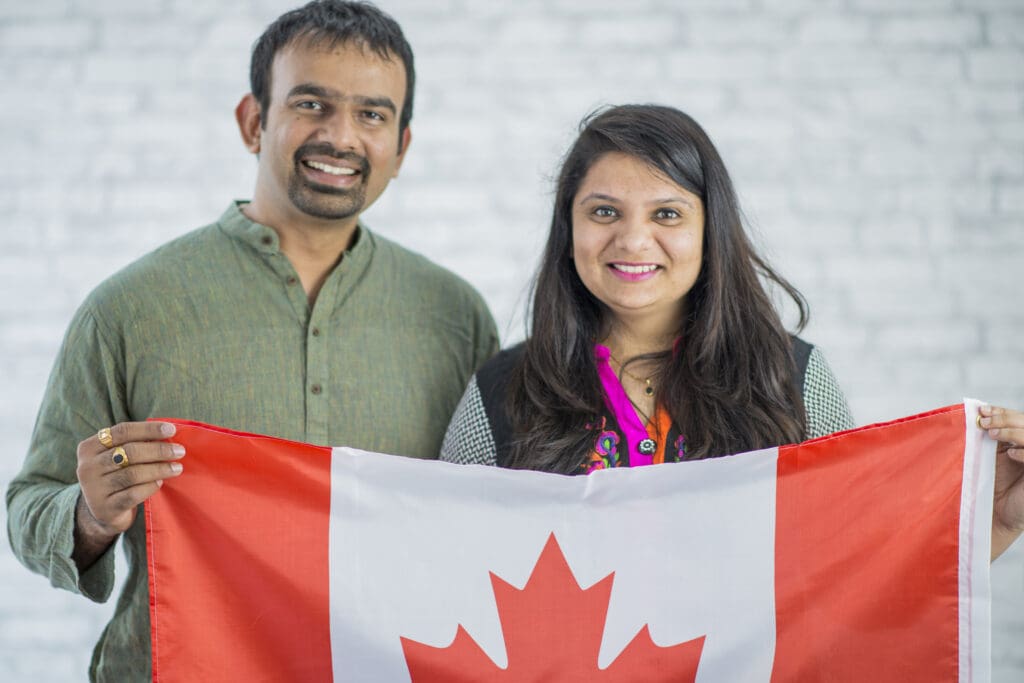Stepping off of a plane to begin a new life in a country you may never have even visited is difficult to imagine for many of us, yet it is a reality for thousands in Canada each year.
In 2024, the Canadian government will welcome over 1 million permanent and temporary residents. While some are students starting work or joining family here, the majority know few people. Landing in Canada isn’t a final arrival at home, rather just a new chapter of a difficult journey.
To help you better understand new Canadians, here are 10 things new Canadians wish their neighbours knew about them.
- Life here is harder than expected
If you’ve ever struggled to navigate insurance, setting up utilities or even looking for work —imagine adding barriers of language and culture to the mix! New Canadians discover that life here isn’t necessarily easy. There are misconceptions about economic opportunities and not all communities are equally welcoming. Many struggle with depression and hopelessness in the first years as an immigrant. - Uncertainty is destabilizing
As a newcomer, finding a sense of home or identity rooted in a place you feel belonging seems like a dream. The need to access education, jobs and the cost of housing means newcomers often must move frequently in their first years. Without secure affordable housing, newcomers find it harder to make plans and carry them out or contribute to their communities in positive ways. - They are lonely
The majority of newcomers to Canada come without connections. If they have previously come from a collectivistic, community-focused region of the world, they may be disoriented adjusting to Canadian independence. Barriers of language and can increase isolation — statistics in Canada demonstrate that immigrants disproportionately experience loneliness. Most newcomers desire real friendship, not just friendliness. - They want an invitation
Canadians typically eat at one another’s homes far less frequently than people in other nations. Many newcomers would feel honoured to be invited to your home for coffee or a meal, and they may even invite you to theirs! - They are resilient
Many immigrants have faced war, politically unstable nations and may have experienced significant trauma. We can help by providing access to mental health resources and creating a supportive environment that acknowledges their resilience. Starting a new life requires courage and the small victories of our new Canadian neighbours are things we can all celebrate! - Systems are not simple
While there is help while living in Canada, many of our systems are not easy to navigate. A 2021 report by the Canadian Counsil for Refugees found that 45% of newcomers face challenges accessing healthcare services. Other services such as education, social services, and even being aware of what’s available at a local library may require a native guide. - They want to work and contribute
Despite a few exceptions that appear on the news, newcomers to Canada generally want to learn, work hard and contribute to a community. When we assume they have desires just like any other Canadian, we can become advocates and cheerleaders helping them to become successful, independent contributors to the community. - Religion is not taboo
While some might feel it is impolite to ask people about their religious beliefs, new Canadians often come from regions of the world where religion is a much more public part of identity. Many newcomers may appreciate being asked about their religious beliefs and identity, and listen with curiosity and love. This will help us know people and love them, it can often provide opportunities to share about the uniqueness of the message of Jesus. - Adapting to a new Culture is difficult
New Canadians may struggle to maintain their cultural identity while adapting to life in a new land. The tension of belonging to two worlds at once can be disorienting and make people feel as though they are losing who they are. We can help by encouraging cultural expression and helping people to navigate the balance between cultural preservation and adaptation. Our genuine celebration of who they are is important! - They need encouragement
Most people need encouragement that they are going to be okay, and that people care for their wellbeing. Real relationships can be transformative in becoming part of a new community, and being open to the changes required to feel at home here. Patience on our part is one of the greatest gifts we can give. Consider ways you can cheer on people on a difficult journey, helping them to thrive in this new place.
When it comes to knowing and loving our neighbour, nothing surpasses letting them into our lives and forming real relationships. If God is calling you to reach out in love to newcomers, remember that it is God’s kindness towards us that draw us to him (Romans 2:4). Let us welcome others with compassion and kindness and let our own hearts be formed more like that of Jesus as we do so!




